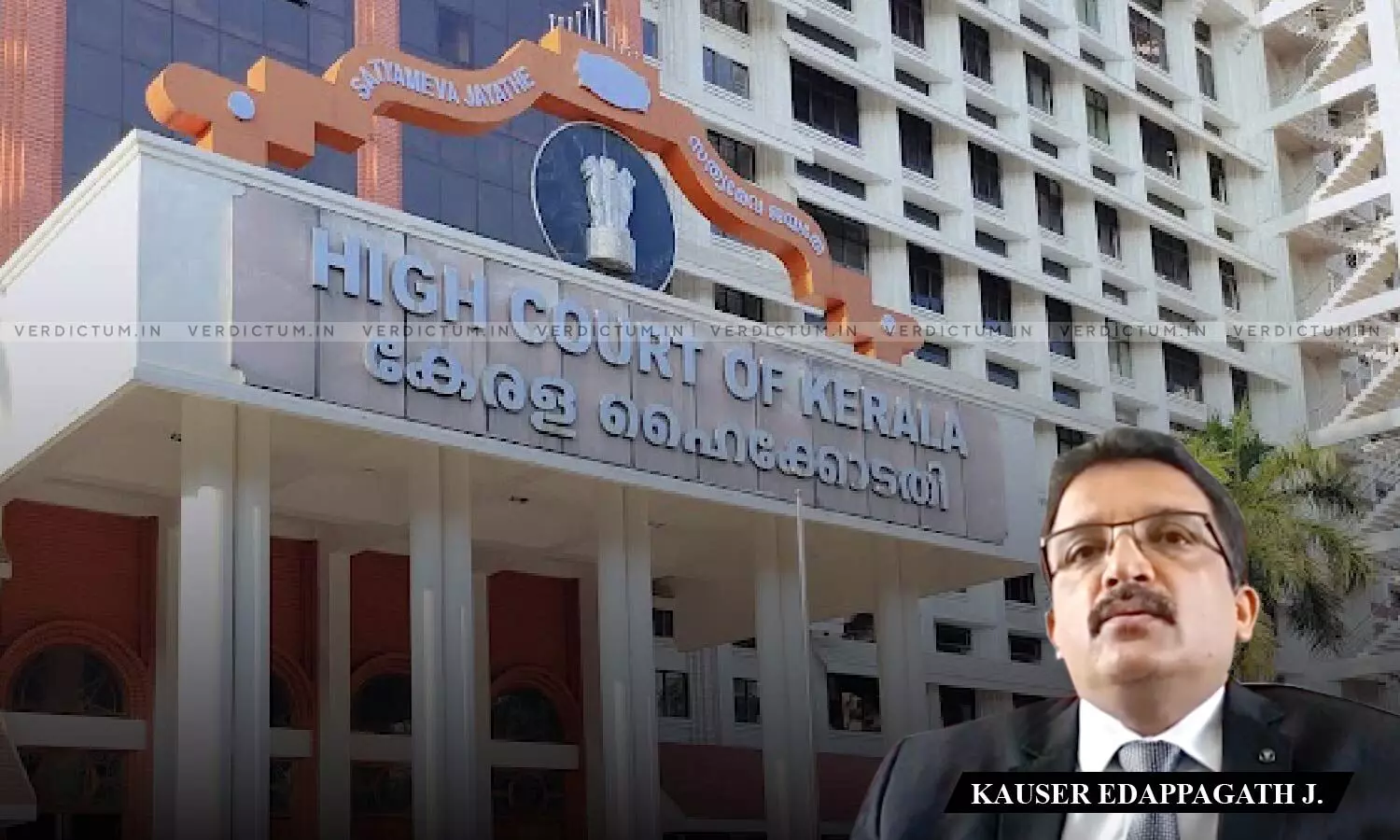
Rubber Trees Do Not Fall Under 'Standing Timber' As They Are Immovable Property, Agreement To Tap Must Be Registered: Kerala HC
 |
|The Kerala High Court observed that rubber trees on a property will not fall under “standing timber” under Section 3 of the Transfer of Property Act, 1882, thus they are “immovable property”.
The Court said that any agreement for tapping such trees amounts to the creation of rights or interest for consideration and, therefore, it must be registered.
The Bench of Justice Kauser Edappagath observed, “They are growing trees. Income is generated from the yield. The trees do not perish after taking the yield once. There is no doubt that they would not fall under “standing timber” falls under Section 3 of the Transfer of Property Act. The rubber trees in the plaint schedule property indeed are trees and thus immovable property. Thus, the transaction evidenced by the agreement is one which requires registration under Section 17 of the Registration Act as it amounts to the creation of right or interest in respect of immovable property for consideration.”
Advocate Rajeev V Kurup appeared for the Petitioner while Advocate Liji J. Vadakedom appeared for the Respondent.
An original petition was filed by the Petitioner/Defendant assailing the order dismissing an application under Order XIII Rule 3 of the Code of Civil Procedure.
A suit was filed for a permanent prohibitory injunction restraining the Defendant from interfering with the tapping of rubber trees standing in the plaint schedule property. According to the Respondents/Plaintiffs, an agreement was executed between him on one part and the first defendant through the second defendant as the power of attorney holder on the other part, permitting him to tap the rubber trees situated in the plaint schedule property belonging to the first defendant and his wife.
The main issue in the case was whether the rubber trees over which right or interest was created were “immovable property”. The Court perused the definition of “immovable property” under Section 3 of the Transfer of Property Act, Section 2(6) of the Registration Act, Section 3(26) of the General Clauses Act, and relied on the judgments in Shantabai v. State of Bombay and Ors. (1958 SC), Joseph v. Joseph Annamma (1979 Kerala),Velayudhan Padmanabhan v. Thyagarajan (2011 Kerala), and Pathumuthumma v. Khaja Moideen (2019 Kerala).
The Court said that the growing and yielding rubber trees which continue to draw sustenance from the soil, and which have not attained stoppage of vegetation and nourishment for further growth cannot be regarded as standing timber and they must be regarded as trees.
The Court observed, “For the simple reason that what is extracted from the yielding rubber trees is in the form of juice, it cannot be said that the interest is created with respect to the movable property. Since the agreement is a compulsorily registrable document, it cannot be received as evidence of any transaction affecting the immovable property comprised therein (Section 49 of the Registration Act).”
Accordingly, the Court disposed of the Petition.
Cause Title: Thomas Baby v. Jojo v George and Ors. (Neutral Citation: 2024:KER:47165)
Appearances:
Petitioner: Advocate Rajeev V Kurup
Respondent: Advocates Liji J. Vadakedom, V. Rajendran (Perumbavoor), N Rajesh and Gopakumar P.